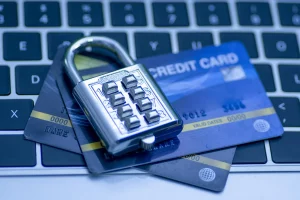
Payment fraud is on the rise as more transactions move online. This article explores the types of payment fraud, its impact, and preventive measures. It is crucial for merchants to prioritize payment security to safeguard operations and maintain customer trust.
The Rise of Online Payments and the Risk of Fraud
Online shopping is growing rapidly, increasing the risk of payment fraud. By 2025, online payments are expected to reach $8.3 trillion. This exposes consumers to a higher possibility of fraud attacks.
The Covid Factor
The pandemic has further increased payment fraud, with cybercriminals exploiting the rise in online shopping. Older consumers are particularly vulnerable.
Types of Payment Fraud
- Unauthorized Purchase Theft: Hackers access customer details to make unauthorized purchases. Merchants must prioritize security to prevent data breaches and revenue loss.
- Identity Theft: Personal information is stolen and used to make purchases or create new identities. Phishing techniques are commonly used.
- Chargeback Fraud: Customers falsely claim non-receipt of orders, resulting in chargebacks. Excessive chargebacks can harm merchants’ payment processing privileges.
- Friendly Fraud: Customers dispute legitimate transactions, intentionally or unintentionally, leading to chargebacks.
Preventing Payment Fraud
Merchants can take proactive measures to prevent payment fraud:
- Clear Business Descriptors: Include company names on statements and invoices to reduce chargeback disputes.
- Tracked Shipments and Delivery Confirmation: Require signatures for tracked shipments to minimize non-receipt claims.
- Monitoring Customer Orders: Use risk management tools and software to detect unauthorized purchases and fraudulent patterns.
- Consumer Education: Raise awareness about safe online practices to reduce vulnerability to fraud.
Balancing Security and Convenience
Merchants should prioritize data security while ensuring a seamless customer experience. Implementing smart, fast, and unobtrusive security measures is key.
Conclusion
Payment fraud poses significant risks to businesses and consumers. Merchants must remain vigilant and adopt preventive measures to protect their operations and customer data. By prioritizing payment security, businesses can mitigate the impact of fraud and build trust in the digital marketplace.
